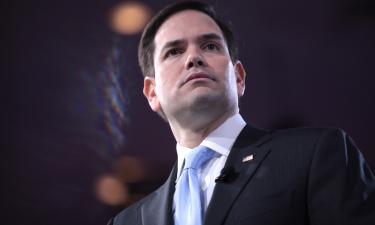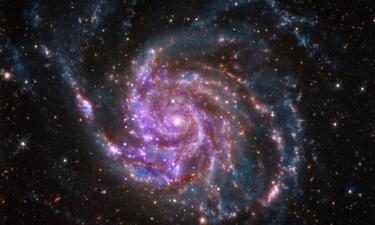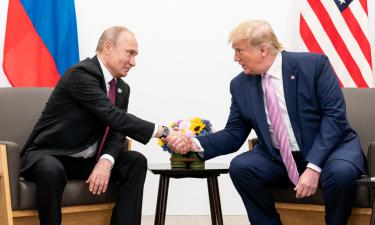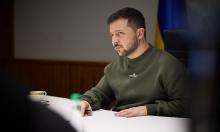Russia seeks justice 150 years after the Crimean War
Although the Crimean War broke out in 1854, 150 years ago, passions continue to run high about it.
Here is only one example. Functions devoted to the 150th anniversary of the Crimean War will be held on the peninsular from spring to autumn in 2004. Ukrainian President Leonid Kuchma has signed a decree stipulating the procedure for holding the functions, which promise to be celebratory events and will be attended by officials from France, Britain, Italy and Turkey. Russia, though, was not even given the chance to discuss the programme.
This may be understandable as Russia was the defeated party and has no cause for celebration. However, an accurate picture of the events of those times cannot be restored without Russia.
After Russia's military defeat, the victorious coalition launched a campaign designed to depict Russia as pursuing a policy of aggression against the Ottoman Empire. The role of Britain, France and Sardinia, which made up the coalition with Turkey and declared war on Russia, was, on the contrary, depicted as entirely righteous. This thesis has been reflected in school history books and in academic and political articles in these and many other countries. Judging by the plans for the anniversary celebrations, Russia is still seen by Europe as the aggressor.
However, documents that surfaced three years ago in the Russian Foreign Ministry's archives of the Russian Empire's foreign policy, should allow some historical justice to be done to Russia. The question is whether or not the other parties involved in the Crimean War want to take an unbiased look at the events of 150 years ago.
A conflict over holy places in Palestine between Pope Pius IX and France, on the one hand, and Jerusalem's Orthodox clergymen and Russia, on the other, served as the formal pretext for the war. Interestingly, although Russia lost the war, it managed to preserve the status quo of the Holy Lands.
However, the church dispute was a cover, as there was a political rationale to the war. France and Britain wanted to change the international situation that had developed in 1815 after Napoleon had been defeated and European affairs were controlled by the Russian, Austrian and Prussian emperors. Russia had emerged as a major political and military power in Europe by that time, which worried the West a great deal. France, the former defeated party, and Britain, one of the victors, were not happy about the situation and resolved to isolate Russia and oust her from the Balkans and the eastern Mediterranean. They succeeded.
Did the coalition benefit from Russia's defeat in the war?
In late February, Russia's Federation Council (the upper chamber of parliament) held a roundtable, "The Crimean War: Lessons of History and Modern Russia's Security." The meeting involved Russian MPs, diplomats, scholars, military and Church officials. It was clear from the participants' speeches that the Crimean War had continued to influence Russia, as well as Europe, the United States and other counties. The most serious consequence of the war was the collapse of the European security system established after the Napoleonic wars. Russian diplomats believe that France and Britain, which unleashed the Crimean War, should shoulder the entire responsibility for this. "The Crimean War was the start of the terrible road to WWI," Alexander Churilin, director of the historical documents department at the Russian Foreign Ministry, said at the meeting. Europe soon plunged into the chaos of intestine wars. Andrei Fursov, Director of the Russian History Institute of the Russian State Humanitarian University, echoed him, saying that Germany then emerged as a new leading power in Europe instead of the isolated Russia.
This story is particularly relevant today against the backdrop of the war in Iraq, which has shaken the principles of international security laid down after WWII, just as the Crimean War ruined the Vienna congress system 150 years ago. Isolating a leading power can cause a significant international imbalance and trigger the emergence of new leaders, for example India and China, without even mentioning the Muslim world with its yet unclear potential. Europe and the USA should not, therefore, try to isolate or discredit Russia, as it has an essential role to play in the development of international stability, in particular European security.
Andrei Volodin, a member of the expert council of the Federation Council's international affairs committee, said the Western powers were continuing the "Crimean strategy" with regard to Russia through the European Union's and NATO's eastward enlargement, fuelling anti-Russian sentiments in the new eastern European democracies and the former Soviet republics.
Indeed, there are many other parallels.
Andrei Fursov, a historian, emphasised at the conference that the West had waged a psychological and information war against Russia in the 20 years prior the Crimean campaign. In the 1830s, Europe began to form a negative vision of Russia, which encouraged the emergence of Russo-phobic trends. St Petersburg (then capital of Russia) paid no heed to the trends and, thereby, committed a serious strategic mistake.
Western countries launched an unprecedented campaign against Russia, manipulating public opinion through the press on the eve of the war, and throughout the hostilities.
Today, of course, such methods are hardly surprising. However, 150 years ago Russia was unprepared for the propaganda war and lost it both on the Western front and at home. Indeed, Russian society did not even know what had provoked the war. It was precisely this defeat in the information war that helped consolidate the image of Russia as the aggressor.
Foreign policy issues must be freely discussed to avoid repeating the mistakes of the past, believes Archpriest Vsevolod Chaplin, deputy chairman of the department of foreign church relations of the Moscow Patriarchy. Russian public opinion has not, thus far, sharply reacted to the steps taken by the country's politicians on the international arena. At the same time, Russians are not indifferent to their country's international image.
The majority of Russians want their country to be strong and a force to be reckoned with. However, this does not mean that they want Moscow to become a "scarecrow" for the rest of the world. Russians know that their country is pursuing just policies that comply with international law. This knowledge fosters patriotic sentiments, which concerns not only the present, but also the past.
In the run-up to the anniversary, Russia has started restoring monuments to those who were lost in the Crimean War. However, showing Russia's true role in that war would be a better way to pay tribute to the dead. This is also important for future Russo-European relations. If, at the upcoming festivities in the Crimea, Russia is again presented to the West as an aggressor, albeit one of the past, this image will be imprinted in young Europeans' minds. This means that the younger generation of Russians will again suffer the shame of their ancestors who witnessed how Russia was isolated and vilified in the mid-19th century.
Marianna Belenkaya, RIAN
Subscribe to Pravda.Ru Telegram channel, Facebook, RSS!





